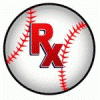Leaderboard
-
in all areas
- All areas
- Images
- Image Comments
- Albums
- Album Comments
- Files
- File Comments
- Events
- Event Comments
- Blog Entries
- Blog Comments
- Topics
- Posts
- Articles
- Article Comments
- Help Files
- Videos
- Video Comments
- Players
- Player Comments
- Players
- Player Comments
- Rumors
- Rumor Comments
- Guides
- Guide Comments
- Players
- Status Updates
- Status Replies
-
Custom Date
-
All time
July 26 2014 - February 18 2025
-
Year
February 18 2024 - February 18 2025
-
Month
January 18 2025 - February 18 2025
-
Week
February 11 2025 - February 18 2025
-
Today
February 18 2025
-
Custom Date
01/16/2017 - 01/16/2017
-
All time
Popular Content
Showing content with the highest reputation on 01/16/2017 in all areas
-
Article: How Does Keeping Dozier Fit With Long-Term View?
Blake and 6 others reacted to drivlikejehu for a topic
There's a difference between praising and withholding judgment. I don't see a lot of 'praise' for the new regime, just recognition of the fact that there's only so much they can do with respect to various issues. Pohlad forced them to keep Molitor for 2017, the trade market for 2nd basemen is tragic, the crop of free agents is atrocious, etc. Dozier-related criticism is largely premised on the idea that surely there is some way to get a fair return . . . yet no one on here has any evidence to support that view, and the available reports contradict it.7 points -
So is caving on a trade and getting no value in return.7 points
-
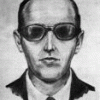
Article: How Does Keeping Dozier Fit With Long-Term View?
KidBro and 5 others reacted to Bark's Lounge for a topic
You roll forward with Dozier being a benefit to the team. You sell high on Dozier or you close your business. DeLeon is not enough. It is insulting, screw that. Maybe Dozier hits 27 HR's next year with a .245 BA and 68BB. That is worth a lot more to me than an unproven commodity like DeLeon. The Twins tried to sell high, but there was not much demand. If you sell low, I cannot see how you improve this club.Maybe there will be an opportunity next summer, maybe not. Dozier is a fine baseball player, but he is undefined in his ceiling and every other org knows that. Keep him and maybe he becomes a Twins legend and is part of a WS victory! or maybe he tanks. Who knows. Never sell low.6 points -

Article: How Does Keeping Dozier Fit With Long-Term View?
PseudoSABR and 5 others reacted to nytwinsfan for a topic
In addition to setting the tone of the relationship with Twins' employees, players and fans, not trading Dozier for undervalue also sets a precedent with other teams about Falvey/Levine's unwillingness to give up gratuitous value, and gives their future aggressive positions during trade negotiations more credibility. There is significant longer term value in that as well. As much as we as Twins fans want to win in 2017, 2018 and 2019 because we are rightly tired of this rebuild taking so long, it isn't Falvey/Levine's job to satisfy that want. Their job is, as they correctly see it, to generate "sustainable success." They won't be fired in 2017, 2018 or 2019 for not making the playoffs, as long as there is forward momentum. So all their incentives are targeted towards the next 6-10+ years, not the next 2 or 3. That is as it should be, even though it is extremely frustrating for us.6 points -

Article: How Does Keeping Dozier Fit With Long-Term View?
Blake and 4 others reacted to diehardtwinsfan for a topic
I guess I'm not seeing how you come to the former in this case. Every time Smith was in a position where he was being forced to make a trade (Santana, Hardy, Garza), he got absolutely raked over the coals. Oh, I forgot Capps... Smith did OK with cost effective pickups during a tight race (Rausch for example), but when he was in a situation like we are with BD, he did the 'take what you can get strategy' and got absolutely nothing. In all of those cases, he would have been better off holding his cards then playing them. I'm not sure the Dozier trade is really any different. Maybe Levi is right and there was far more on the table there and the Twins were being greedy, but based on every press report out there, it's JDL and nothing else special. That is pretty much the definition of a Bill Smith trade. He'd have taken that and that would have been that. A big part of getting value in trades is knowing when to walk away and being willing to do so. I'm disappointed, but truthfully, I'm not surprised. F&L were going to get tested. That may mean failing to trade Dozier, but it also makes real clear to the 29 other GMs that they aren't going to take their scraps.5 points -
I've never seen a new regime get praised so much for doing nothing.5 points
-

Article: How Does Keeping Dozier Fit With Long-Term View?
KirbyDome89 and 4 others reacted to jimmer for a topic
We are also in this situation because of Ryan Hunter wasn't traded. Santana wasn't traded soon enough, Span was traded for the wrong player, Cuddyer was never traded, Willingham was never traded and so on. And Ryan handpicked Smith (who got a lot of the quality talent we are counting on now in the international marker, BTW) Holding onto quality players too long and getting no value in return is a good way for a mid-small market team to stay down.5 points -
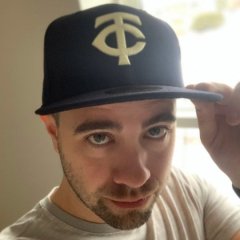
Article: How Does Keeping Dozier Fit With Long-Term View?
PseudoSABR and 3 others reacted to Nick Nelson for a topic
Ever since first stepping into their roles leading the Minnesota Twins baseball operations department, both Derek Falvey and Thad Levine have been talking about the big picture. So how would keeping Brian Dozier, whose value is at a high point, align with the future-focused approach that this regime has espoused?In their early days on the job, the new CBO and GM were clear about their intentions to build a foundation for sustainable success, acknowledging that it might be a gradual process. Falvey laid out his vision for a "data-driven" collaboration. Levine spoke of making "thoughtful decisions that are designed for the future of this organization." On the surface, trading Dozier – a veteran star in his prime, who is highly unlikely to play on a championship-caliber team here during the two remaining years on his contract – would seem to be the very definition of such a move. But as we discussed late last week, Minnesota's front office has been stonewalled in its efforts to extract ample value for Dozier. Clearly, the newly installed executive duo entered this offseason with a specific valuation of Dozier, unshaded by familiarity with him as a person or his intangible value to the franchise. Clearly, suitors have been unwilling to meet it, for reasons outlined in last week's post. In the comments section for that article, some readers opined that the Twins should simply lower their sights and take what they can get for Dozier, which at this point appears to be Jose De Leon and not much else. It's a reasoned take because, in the big-picture view, De Leon has a much better chance of contributing to a contender in two years and beyond. But there's another big picture to look at, framed within Target Field and its many offices and operations. Beneath the new leadership structure, there are many returning employees, including the players on the roster. They are forming their own opinions of Falvey and Levine, who are both assuming top decision-making roles for the first time. Respect is earned, not given, and in the eyes of longtime Twins people who were loyal to Terry Ryan, these relatively inexperienced successors have big shoes to fill. How is it going to look if their first major trade involves shipping out the team's best player for a return that blatantly falls well short of expectations? How does it look to the guys in the clubhouse if their exemplary leader, viewed as a linchpin in efforts to rebound and return to contention, is removed and replaced by a rookie with no record of big-league success? How will the "Screw 2017, we'll do whatever it takes to get better in three years" approach be received by Paul Molitor as a lame duck manager who desperately needs to improve, in short order, to keep his job? And how much are these perceptions worsened if De Leon's shoulder flares up in the spring, or his initial struggles carry over to his first full season, or he ends up in the bullpen? If the Twins aren't getting back any additional pieces, there's no alternative opportunity to recoup value. Falvey knows about the importance of bolstering your odds. He comes from an organization that benefitted greatly from receiving quantity in these blockbusters. When the Indians traded CC Sabathia to the Brewers back in 2008, it wasn't headliner Matt LaPorta who ended up achieving star status but rather the "player to be named later" rounding out the package, who turned out to be Michael Brantley. When Cleveland traded Cliff Lee to Philadelphia a year later, four prospects of similar standing came back but only one truly panned out: Carlos Carrasco, who was a staple in their division-winning 2016 rotation. Of course, playing the odds works both ways. Any realist needs to acknowledge that the odds are very much against Minnesota making a dramatic jump and actually competing for a postseason spot in 2017. In the scope of long-term rebuilding, keeping Dozier is counterproductive in two important ways: it deprives the system of a top-tier talent in De Leon, with a lesser return likely if they make a deal down the line, and it forces Jorge Polanco to keep playing out of position at shortstop. Falvey is a calculating and analytical guy who earned a degree in economics. With the Indians, he learned under some of the game's most revered negotiators and evaluators. Same goes for Levine, who served as Jon Daniels' right-hand man in Texas. If Ryan were still in charge, I could see a stronger case for the Twins irrationally overvaluing their own asset. Such instances were not uncommon during his tenure. But the individuals charged with this Dozier decision are coming into the situation with clear eyes, and no inherent illusions about the current state of the organization. Tying this scenario to Falvey's area of speciality, there is an oft-cited concept in economics called opportunity cost. It is defined as "the loss of potential gain from other alternatives when one alternative is chosen," or more simply, the benefits that you give up by choosing one option over the other. In our present situation, the Twins are evidently prepared to leave a major prize on the table, as they've judged the positives of holding their ground and hanging onto Dozier to outweigh the value of acquiring De Leon. You can argue with the merits of their conclusion, but I don't think you can deny it's a thoughtful decision that meshes with a data-driven mindset. Click here to view the article4 points -

Article: How Does Keeping Dozier Fit With Long-Term View?
Tom Froemming and 3 others reacted to Otto von Ballpark for a topic
Yeah, part of keeping Dozier has to be a pivot towards winning in 2017-2018 and that hasn't happened. And without a credible threat of it happening, it probably reduces the Dodgers urgency of finalizing a deal with Minnesota.4 points -
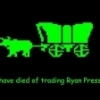
Article: How Does Keeping Dozier Fit With Long-Term View?
D.C Twins and 3 others reacted to nicksaviking for a topic
That was my belief heading into this offseason and I said as much multiple times. However I don't think that's anywhere close to a stone cold certainty anymore, not because Dozier is going to improve his stature, but because there is no demand now. His value is going to increase or decrease mostly due to demand, not performance. Also, we have so many people saying we have to jump on this offer of De Leon plus nothing/minimal pieces. Why don't we just slow down and wait until March? If Dozier is the Dodgers preferred target, they'll come calling back to the Twins before they do anything else at 2B.4 points -

Article: How Does Keeping Dozier Fit With Long-Term View?
KirbyDome89 and 3 others reacted to HitInAPinch for a topic
Turning around a team that has a few could be's, some wanna be's and some never will's ain't gonna happen overnight.4 points -

Article: How Does Keeping Dozier Fit With Long-Term View?
d-mac and 3 others reacted to Oldgoat_MN for a topic
Evidence suggests that Polanco will be a good MLB player. However, without a track record I do not believe he would demand much of a return. And we already know that the 2B market is pretty cold.4 points -
Respect of the players should not be a decision point for the new front office. I don't think players play harder or Lolly gag because they do or don't respect the front office. I still think that Dozier gets traded to the Dodgers. We are going to play every card we can. We already tried the all these other teams are in on this. We are simply now playing the last one we have, which is this is not good enough and we are keeping him.4 points
-
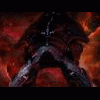
Article: How Does Keeping Dozier Fit With Long-Term View?
d-mac and 3 others reacted to TheLeviathan for a topic
I thought part of the value in hiring outside leadership in the FO was to help change the way we do things? If so, I hope they are making their decisions with absolutely no calculation of what the underlings of the past regime want them to do. Otherwise we undermine the value in hiring from the outside. I have no reason to doubt our new FO is being thoughtful and making well informed decisions. They deserve the benefit of the doubt. I also appreciate that they seem to recognize trading Dozier is the right thing to do. I'm willing to continue to be patient as they try to squeeze value out, but at the same time this trade does need to happen somehow some way. So hopefully they have the salemanship, read of the situation, and creativity to pull it off.4 points -
Article: How Does Keeping Dozier Fit With Long-Term View?
markos and 3 others reacted to Mike Sixel for a topic
Is there any evidence making one bad trade leads to more bad trades. Does anyone have data on that, or do we just magically know it is true? And Dozier is a leader and will help with contention? Really? How did that leadership work out last year?4 points -

Article: How Does Keeping Dozier Fit With Long-Term View?
d-mac and 3 others reacted to KirbyDome89 for a topic
Idk if I'm buying that they're reluctant to trade Dozier because they fear backlash from TR loyalists and some potential negative PR but if that truly is a factor in the decision making process then maybe I need to lower my expectations for this new regime.... Realistic trade expectations and opportunity cost have to merge at some point. Holding onto BD does nothing to help this team when they should actually be a contender. If the Twins are watching Dozier walk in 2 years then they've failed.4 points -
Article: How Does Keeping Dozier Fit With Long-Term View?
KirbyDome89 and 2 others reacted to Mike Sixel for a topic
Do we know this to be true? And why is Sano being traded?3 points -
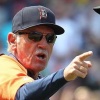
Article: How Does Keeping Dozier Fit With Long-Term View?
nicksaviking and 2 others reacted to USAFChief for a topic
In my case, I'm happy they haven't given Dozier away, while still pretty disappointed overall at the lack of attempts to improve the team for 2017 and beyond.3 points -
I believe I stated early on when the FO took charge that other than a potential Dozier deal, what would take place this year was more behind the scenes actions than on the field moves. I still believe this to be true and in action. And I'm OK with this. Despite being experienced baseball men who surely have at least some feel and knowledge of the players and personnel in the Twins system, their knowledge still came at a distance and through second hand knowledge. What they have to do, and I believe are doing even now, is exams said players and personnel from top to bottom, as well as implementing their own various tweaks, changes, and staffing upgrades and moves. Honestly, it would be pretty short sighted for them, or any new management team, to immediately come in and hand out pink slips. The entire organization has to be examined and a new structure of doing things put in place. Do I believe they have made an honest attempt to move Dozier and gain assets? Yes. It appears, for now, the return simply hasn't been there. We talk about the Twins past office never selling high on players. Just as egregious can be forcing your hand to sell low. I don't believe the book is closed on trading off Dozier now, or in the future. Nor do I believe they are done making moves to enhance the club. I would be very surprised if we don't see a few more moves or signings before ST starts. But clearly, this was the first major domino to fall...or not fall...before moving forward in whatever capacity they see fit. I will not judge them because in the first few months they began to install a culture and way of doing things and did not immediately blow up the franchise.3 points
-
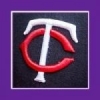
Article: How Does Keeping Dozier Fit With Long-Term View?
nicksaviking and 2 others reacted to brvama for a topic
IMO, This statement from Nick is the most important of all: "... the individuals charged with this Dozier decision are coming into the situation with clear eyes, and no inherent illusions about the current state of the organization." Those are views of two outsiders on Dozier's value. I'll defer to them,3 points -
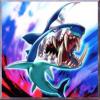
Article: How Does Keeping Dozier Fit With Long-Term View?
mikelink45 and 2 others reacted to Boom Boom for a topic
It's clear that, besides the Dodgers, there is no interest in Dozier. And LA is only lukewarm to him - apparently they're just fine looking elsewhere. I'd like to see more than De Leon, but if the Twins want to maximize Dozier's value, I say make the deal. He's not going to have more value at the deadline, and my intuition tells me that 2016 will be his best year as a pro. If the Twins aren't going to sign him to a long-term contract, this is the best that they can do.3 points -
Article: How Does Keeping Dozier Fit With Long-Term View?
Seth Stohs and 2 others reacted to dougd for a topic
Throughout the Dozier trade discussions, it seems like most have given up on 2018 as well as this year. The Twins could be the most improved team in baseball this year and still struggle to reach .500, but is 2018 already impossible with Dozier the first half or more of the season? I would rather have two very good prospects now (if that was/is possible), but there is a small but real benefit to having Dozier available for the start of 2018 instead. The Twins did rank 29 out of 30 on the BPRo luck index for 2016. Can Polanco play the outfield? Probably better than Sano or Grossman, but is this a possibility down the line? I have heard the comment that "everyone has a Polanco" and it may be also literally true, but perhaps 2018 could be the year he becomes a Zobrist. Anyhow, there are a lot more things to be unhappy about than Dozier still being a Twin.3 points -

Article: Forecasting Mauer's Remaining Years
SwainZag and one other reacted to Cody Christie for a topic
When the Twins signed Joe Mauer to the largest contract in team history, fans were excited to see what the future could hold. He was coming off an MVP season where he rewrote the record books when it comes to offense from the catching position. Minnesota was annually in the playoff hunt and optimism was running high. Flash forward six seasons and that optimism has run out. Mauer is no longer behind the plate and Minnesota is in the midst of one of the franchise's worst stretches. So what can fans expect from Mauer with two years left on his monster deal?Mauer will turn 34-years old during the first month of the coming season. He's slowly moving out of his prime and many Twins fans might argue that he's already past his prime. There are still two years remaining with Mauer in a Minnesota jersey and there have been glimmers of hope when it comes to the offensive side of the ball. During last March/April, Mauer got off to a fast start as he hit .321/.453/.440 with seven extra-base hits and a 20 to 9 strikeout-to-walk ratio. By the end of April, he hit for five home runs and posted a .741 OPS. The season was off to a strong start. The season's middle months didn't go so well and a quad injury bothered Mauer starting at the middle of August. He still ended that month hitting .337/.419/.533 with 13 extra-base hits. However, the injury continued to bother him into the season's final month. He posted a .111 batting average and a .468 OPS while being limited to 12 games during September/October. There was good in 2016, like Mauer sharing co-American League Player of the Week honors with rookie teammate Max Kepler. There was bad like the month of June where he hit .223/.308/.287 with 22 strikeouts and 12 walks. There was ugly as he tried to fight through the final month of the season and posted the number mentioned above. When Mauer's quad injury was originally reported, he was hitting .284/.384/417. Those are numbers most fans could handle especially since his defense at first base ranked among the best in the American League. So what version of Mauer will show up in 2017? Over the last three seasons Mauer has combined to bat .267 with a .733 OPS while averaging 40 extra-base hits per season. FanGraph's ZiPS 2017 Projections predict Mauer will hit .262/.350/.378 with nine home runs and 23 doubles. Injuries will tell the tale of Mauer's future. If Mauer has other nagging injuries, those numbers seem accurate. If he can stay healthier in 2017, I'd expect those numbers to be higher. Mauer's final year under contract will be an interesting one. Is he going to want to continue to play? Does he want to finish his career in Minnesota? Do the Twins want to keep him around into his late-30's? Earlier this off-season, I projected the 2020 Twins line-up and it didn't include Mauer in the picture. In fact, another current member of the roster has taken over for him at first base. Trying to make predictions can be a murky proposition especially in the baseball world. Mauer was one of the best hitters in the game before concussions and injuries took something away from him. Even if these are his final two years in Minnesota, I am going to continue to appreciate him every time he steps up to the plate. He's one of the best players in team history and he deserves fans' respect especially if his tenure with the Twins is concluding. What are your expectations for Mauer over the next two seasons? Leave a COMMENT and start the discussion. Click here to view the article2 points -

Article: How Does Keeping Dozier Fit With Long-Term View?
TheLeviathan and one other reacted to KirbyDome89 for a topic
Its good to see that the Sano pitchfork mob is making an early return this year....2 points -
Article: How Does Keeping Dozier Fit With Long-Term View?
wsnydes and one other reacted to Mike Sixel for a topic
Trading a catcher for a relief pitcher we didn't need is like trading for a starting pitcher with six years of control left? The Santana trade would look a lot better had they kept Hardy....A lot2 points -
If we're back on this again, I don't think any of the assets on the table have "no value." You could argue with a straight face that they have LESS value, but no value?2 points
-

Article: How Does Keeping Dozier Fit With Long-Term View?
Oldgoat_MN and one other reacted to Vanimal46 for a topic
This thread has been okay so far. I've read several times on other threads "Kudos to Falvey & Levine for not caving in on making a trade" If I had a nickel for every time someone said "Kudos to TR for not caving in on making a trade" I may have 1 nickel.2 points -

Article: How Does Keeping Dozier Fit With Long-Term View?
Vanimal46 and one other reacted to TheLeviathan for a topic
I tend to think what is truly on the table hasn't been outwardly discussed. I don't think it's JDL and Alvarez and I also don't think it's just JDL. I think it's something else. But we need to find a way to make what accompanies JDL worth our time, somehow, someway.2 points -

Article: How Does Keeping Dozier Fit With Long-Term View?
BuxtonBandwagon and one other reacted to diehardtwinsfan for a topic
Yeah, I don't think the hesitancy is to appease TR loyalists or anything of the sort. I think it has to do with the fact that TR wasn't the only conservative player out there when it came to dealing talent, and that there was good reason for it. TR made his fair share of mistakes, don't get me wrong, but he had a reputation of wanting value when he made trades, and it's a large part of why this team was competitive during the 2000s. You're right though that the trade needs to happen. The real problem though is if no one gives any real value for BD. If LA is the only bidder and won't offer more than JDL + junk, I'm likely to side with F&L and say keep him. That sets a bad precedent and leaves an enormous amount of risk here, the largest of which is that JDL fails and that valuable asset got us nothing but wasted time.2 points -

Article: How Does Keeping Dozier Fit With Long-Term View?
d-mac and one other reacted to Oldgoat_MN for a topic
I had never heard of the BPro Luck Index. Fun stuff. If anyone else is new to it (only me?) here is Part 1 and Part 2. One thing this does NOT take into account is the manager having one of your best hitters bunt a runner to second base when you are down by one run in the FOURTH INNING! How much luck would you need to overcome managerial decision like that?2 points -
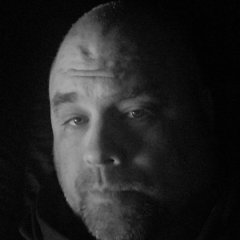
2017 Twins Off-Season top 60 Prospect List: 56-60
nater79a and one other reacted to Seth Stohs for a blog entry
Spent 45 minutes chatting with English a couple of days ago. He's healthy. He had Lasik surgery in April. Was supposed to miss three weeks. That third week, he was playing his second (final) rehab game when he hurt his ankle. However, he came back for about 25-30 games at the end of the season and ended with five in Rochester. He also played 22 games in the AFL (one behind team leaders). He's healthy. He's talented. He and Granite are very similar in terms of skill set. Here's my thought. English probably has a little more upside. He's a little bigger/stronger. They're both incredible fast. English is a better outfielder and has a stronger arm. The two are friends and competitive with each other, which is fun to see. If people have my book and have seen my updated top 30/50 rankings, I have Wade in the low-teens, with English and Granite in the mid-20s. Wade has a chance to be a quality everyday left fielder (or a 4th OF). Of the three, all of them can play CF, but Wade and Granite are more left fielders whereas English can absolutely be a centerfielder (even if he never gets that chance because of Buxton).2 points -

Article: In His Words: Tanner English's 2016 Season
Thrylos reacted to Seth Stohs for a topic
Twins minor league outfielder Tanner English has always been a star on the baseball field. Like many in professional baseball, he was a great high school player. Following his career at St. James High School in Murrell Island, South Carolina, he was drafted in the 13th round by the Tampa Bay Rays. After a lot of deep thought and long nights, English decided to stay in-state and attend the University of South Carolina. Following three seasons there, the Twins used their 11th-round pick to take the speedy center fielder.His talent and athleticism helped him get to the point where he began his 2016 season with the Ft. Myers Miracle. English can now see clearly a path to further success, and maybe even a major league career. “I’ve been blessed with some natural abilities that I can thank the good Lord for, and my parents, but I think that everything’s caught up with me.” English continued, “I think I’ve been performing enough my entire life to get to the point where I was, but to advance my game any more, I needed to put myself into the best position I could.” When English was in grade school, he started wearing reading glasses. In middle school, he was encouraged to start wearing contacts. “It didn’t work. So I gave up on it. The rest of high school, and even in college, I tried hundreds of pairs of contacts, and none have ever worked, for whatever reason. Maybe I’m a diva.” English said his eyesight, without enhancement, was around 20/50. Not terrible, but certainly not near 20/20. Eyesight is crucial for a baseball player. Hall of Famer Ted Williams was found to have 20/10 vision. Tony Gwynn also tested at 20/10. 20/8 is said to be “perfect” vision. From a recent San Diego Union-Tribune article, “Optometrist David Kirschen, of Brea, who specializes in studying the eyesight of athletes to achieve optimal sports performance, says the average major league baseball player’s vision is 20/12 and 3.9 percent have 20/8 eyesight.” English had been encouraged to get contacts in his physicals with the Twins too. About two weeks into the Miracle season, Twins minor league field coordinator Joel Lepel asked English how his contacts were treating him. English again reported that he wasn’t wearing them. That turned into a conversation with English, Lepel and Twins minor league director Brad Steil. A couple of days later, English had Lasik surgery. English reports, “Now I’m reading the 20/10 line in some cases and can read the 20/15 line easily.” The plan was to miss three weeks of the season. By doctor’s orders, he wasn’t supposed to do anything for the first two weeks. Then just one more week of rehab to get his legs back under him and get a few at-bats, and he was to head back to the Miracle lineup. Or, that’s what was supposed to happen. “I played one (game). Got my second one. The last inning of that second game is when I hurt my ankle. That three week time frame turned into another eight weeks. That was not fun at all!” Can you imagine the frustration? English struggled with the decision to miss three weeks for the Lasik surgery but decided it was in his best interest. He knew that injury was part of the game, but it obviously isn’t what any competitive player wants. “It was going stir-crazy. I was in my walking boot for five weeks, and I had to rehab for another three weeks.” He continued, “I was seeing the ball like I had never seen it before. So I was chomping at the bit to get back on the field, and then I got hurt. That’s what happens in baseball. Everything happens for a reason. I don’t really know what that reason was, I’m just trusting the good Lord’s plan and taking things as they come.” He returned to the Miracle in early August and played in just 22 games with the Miracle. After missing so much time, he was behind the curve, but despite hitting .247, he got on base 36% of the time. And that’s the type of offensive weapon that he is. “I would like to be that table setter guy. No matter if I got a hit, if I walk, if I get hit by a pitch. Shoot, if I hit the ball and the shortstop makes an error. I want to get on base because I know that once I am on first base, we have a good chance of scoring one run. And in a lot of games, one run goes a long way. Once I get on first, I know that I can steal second. I could get to second base on a passed ball and score on a base hit. A couple of times this year, I scored on base hits from first base. I’m pretty confident that if I get on, I can help the team out and put a run on the board. That’s my goal every at-bat. It changes a bit here and there, like if a runner is on second base. Same thing if a runner’s at third base. I’m not expected to be driving in runs all the time. There’re other guys in the lineup expected to do that. I’m paid to get on base and score run. That’s what I’m trying to do.” It may seem easy, but it is a realization that each player needs to come to. They need to grow and mature as a player and a person to realize the type of player they need to be. It is a process. “I think that’s half the battle. I battled with myself when I was a little bit younger. In high school, I was able to hit the ball over the fence. When I got to college, it was an adjustment I had to make, and I’d still be swinging too big. Then when I got into pro ball, my eyes started opening up. I realized it more every day. We also play more, so I can see it. It took me awhile to realize it, but when I did, it helped my game out a lot.” When the calendar turned to September, English had another surprise, though this one was positive. “We were coming back from Jupiter. It was about 1:00 a.m. When I hit the bus, I put my headphones on. and I find my happy place and I’m out. Smitty (Miracle manager Jeff Smith) walked up and shook my leg. I opened my eyes real groggy. He’s like, ‘Hey, just got a call. Buxton got moved up, and you’re going to New York in the morning. You’re going to fly into Rochester in the morning.’” Great news for Tanner, of course, though he did have a quick phone call to make. “My parents had just crossed the state line to get into Florida to come watch me play my last few games. I called my dad and said, ‘I’ve got some really bad news. I guess it could be good news. I just got moved up to Rochester, so you guys have to turn around and go home.’ They had to drive all the way back. That phone call was cool. I didn’t sleep that whole night.” English wasn’t completely sure what he was going to do with the Red Wings, but he was excited for the opportunity, even if it was only five days. “I thought I was just going up there to fill a spot in case somebody got hurt and needed a backup outfielder. I didn’t know that at the time they only had two outfielders on the roster and needed a center fielder. I went up there and met with (Rochester manager Mike) Quade. I said, ‘Hey, I’m Tanner. Nice to meet you. Thanks for having me.’ He said, “OK. Here’s the signs. You’re hitting ninth tonight and playing center field.’ I wasn’t expecting that, so I had to prepare for that. It was awesome.” After going 0-6 in his first two games, English ended the season by going 5-11 with a double and a couple of stolen bases over the final three games. “I wasn’t really going up there trying to impress anybody. I was just trying to go up there and have fun and really enjoy the experience. I ended up playing really well. I think having that mentality of just go enjoy it, it’s baseball, don’t put any extra pressure on yourself. I think that helped me the most. It’d be really easy to get thrown into that situation and get really tight and try to do too much. I’m glad I didn’t do that. I’m glad I took it pitch-by-pitch and played with a smile on my face. I know that might sound silly, but I just thoroughly enjoyed myself. The weather was beautiful. The fans were great. It was a really fun experience. And the guys were really great, they were all really good to me.” He also was in the clubhouse when Mike Quade informed the Red Wings that James Beresford was heading to the big leagues. “Being able to see how all the guys reacted to James Beresford getting called up. It was a really cool experience. It was a really fun experience for me to see those guys get called up and be like, I’m right here. It’s really motivating. It was a good time man.” The regular season was over. Combined, with Ft. Myers, rehab appearances in the GCL and the late-season stint with the Red Wings, he played in a total of just 41 games. He was an ideal candidate to send to the Arizona Fall League for some additional experience. We’ll discuss the Arizona Fall League experience, what he was hoping for in the Fall League, how he felt about it and more later in the week with additional thoughts of Tanner English. Click here to view the article1 point -

Article: How Does Keeping Dozier Fit With Long-Term View?
DocBauer reacted to Riverbrian for a topic
5? I just thought I'd throw in a guess.1 point -

Current TV, regardless the year
Vanimal46 reacted to nicksaviking for a topic
Sherlock last night certainly seemed like a finale. If so, it was OK as far as finales go but that's not saying much since most are a let down. This one seemed less like a Sherlock episode and more like a Saw movie. It was OK I guess but not great and I'd bet if I re-watched it much more closely there would be a ton of plot holes and continuity issues which you don't want to see in a show like Sherlock. It was a good run, I think the show can end now. I'm guessing the leads are much too busy to even think about doing another series at this point anyway.1 point -

Article: How Does Keeping Dozier Fit With Long-Term View?
PseudoSABR reacted to HitInAPinch for a topic
There was an article in the Strib that had the boys saying that there would probably be more activity later this month. Also, Jim was saying: “They never said they were going to make splashy moves. There was no expectation or instruction to make splashy moves just for the sake of change,” Twins owner Jim Pohlad said. “It’s more important to evaluate how to make the team more consistently competitive over the long haul, and I’m confident that’s what they’re trying to do.” http://www.startribune.com/twins-new-bosses-derek-falvey-thad-levine-take-the-guarded-route/410597805/1 point -

Article: How Does Keeping Dozier Fit With Long-Term View?
Riverbrian reacted to Han Joelo for a topic
I like Nick's perspective. This Dozier drama has been an interesting case study in optimism vs. pessimism. There's some of both on both sides, for sure, but the tenor of the "trade Dozier for whatever the Dodgers offered" comments tends to skew towards pessimism. Unless you're extremely optimistic about Deleon. But hey, I was once pretty optimistic about Alex Meyer, Delois Guerra, and Boof Bonser. And Jose Berrios. Wait, maybe I'm the pessimist!1 point -
You forget about the bold move of getting Castro :-)1 point
-
Article: How Does Keeping Dozier Fit With Long-Term View?
brvama reacted to drivlikejehu for a topic
There are always a lot of unknowns in baseball. I think it may be hard for Falvey & Levine to basically give away Dozier and his 2018 season without seeing if they can make progress on run prevention in 2017 and set the Twins up to be respectable in 2018. Now, they haven't actually done anything, but at least part of the problem has been management of existing talent (e.g., moving May to the bullpen). They also may be willing to move more aggressively with prospects, when appropriate. We know that Falvey & Levine are both from orgs that made plenty of deals, and that they are willing to trade Dozier. They undoubtedly understand the ramifications of not trading him.1 point -
Article: How Does Keeping Dozier Fit With Long-Term View?
sftwinsfan reacted to sploorp for a topic
The most alarming part of the whole trading Dozier thing is how many fans think the team has to trade Dozier or they've failed. Personally, I feel that couldn't be more wrong. Trading Dozier means the team gets to move Polanco to 2nd. They even say it's his "natural" position. I have no idea what that means. Maybe it's just a nice way of saying failed short stop. If that's the case, then I guess that makes Dozier a natural 2nd basemen too. It probably also means that the majors are already loaded with natural second basemen and could be why it has been so difficult pulling off a trade. The net gain defensively is a push and we lose Dozier's power bat. Even if Dozier never comes close to hitting 42 again, 20-25 isn't an unreasonable expectation and would still make him one of the most productive 2nd basemen in baseball. For me the big burning question of a Dozier trade becomes who will replace Polanco at short? Please don't say Escobar or Santana because if they were so good, they would already be playing it instead of Polanco. It would be one thing if Gordon or some other total stud SS was chomping at the bit and ready to come up. If that were the case, I could look at a deal as paving the way for the team's short stop of the future and would be much more receptive to trading Dozier. As is though, I see the team taking two steps backwards and they'll need a huge return just to break even. No deal is better than a bad deal and this is a bad deal no matter how you try to sell it. Right now, the very real result of trading could be watching Dozier in the playoffs or even the world series while De Leon recovers from Tommy John surgery. Kudos to the new management team for not caving. If the Dodgers don't want to pony up, just wait until the deadline and see a better deal can be made. Maybe Gordon will be ready move up by then. Heck, I wouldn't even mind seeing the team extend Dozier a few more years - especially if he has a slow start. He says he wants to stay in Minnesota, let's find out how bad.1 point -
Consider the effect of trading Dozier for the limited offer LA provided simply because "we need pitching, and this is the best offer!" and then wait 2-3 years when Sano has to be traded. If the Twins cave on a Dozier trade, every GM will expect (demand?) that they cave on every other trade. Management must establish that the Twins aren't "BB player flippers".1 point
-

Article: How Does Keeping Dozier Fit With Long-Term View?
chpettit19 reacted to diehardtwinsfan for a topic
Have we forgotten the Bill Smith era already? He did some great things with international signings, but part of the reason this org is where it is right now is due to the talent that got given away for nothing... and he did far more than once.1 point -
Article: Impasse
Aaron Cross reacted to ewen21 for a topic
That was supposed to show us that those guys were leaders. The favored veterans taking in the new guy The culture needs to change.1 point -

Article: Impasse
diehardtwinsfan reacted to drjim for a topic
I thought it was a very interesting way to look at it. Every new GM will face a unique situation so nothing is perfectly replicable, but a little caution and conservatism when taking over a new and unfamiliar organization seems prudent. We could have gotten AJ Preller. Friedman to Dodgers, Preller to Padres, Epstein to Cubs, Stearns to Brewers, Klentak to Phils, Shapiro to Jays, Dipoto to Ms, Luhnow to Astros strike me as the most recent relevant comparisons.1 point -

Article: Impasse
Oxtung reacted to Nick Nelson for a topic
We need to get past the idea that Brian Dozier's production was somehow not valuable because the Twins lost 100 games. That's a very shallow way to look at it. The Twins were terrible because of catastrophic issues preventing runs – issues which will require a lot more to fix than adding one rookie pitcher. The offense was good enough to compete, in large part because of Dozier.1 point -
Article: Impasse
diehardtwinsfan reacted to IndianaTwin for a topic
There are plenty of reasons to trade Dozier. I won't summarize, but they seem to center around "We're bad, and his value will never be higher." There are at least a few reasons not to trade Dozier. These are harder to summarize, but the sentiment seems to be, "We're not saying we can't trade Dozier, but we need to get more than what seems to be on the table." I have another possible reason for not trading Dozier that I'm not sure has been discussed much, at least not in these terms. I'll get at it by asking a question: "What is the best pattern for a new President/GM?" When I'm new in a job, the first thing I want to do (other than find the best local lunch spots; oh, and "Where's the crapper?") is get a really good handle on the situation. If my boss (or my first hire, depending on whether we're thinking of Falvey or Levine) is also new, I especially want to get a handle on the situation before making any major changes. Now, I know that it's easy to say that getting a handle on our current situation is saying, "We suck." More specifically, "Our pitching sucks." But that doesn't seem complete enough for what I'd want. I'd want to know the degree of suckitude at each position, from our best player to our 100th, from our big-league manager to our lowest-level scout. I want to know which asset has potential to be great and which has the likelihood of continued suckitude. And that takes time. Thus my question above. The only example I looked at was The Mighty Theo (hereafter, TMT), who was signed in October 2011. Here's what appears to be the extent of TMT's first offseason: Signed Reed Johnson as a free agent.Traded Sean Marshall for two guys I don't remember and Travis Wood.Traded Andrew Cashner and a nobody for Anthony Rizzo and a nobody.Signed Paul Maholm. That's three moves that classify as "tinkering" to me, plus hitting the jackpot with Rizzo. But even Rizzo has a pretty big asterisk. TMT had drafted him with the Red Sox and had a very good handle on what he was getting. TMT had a much better handle on what he was getting in Rizzo than FalVine would have in trading for DeLeon or probably anyone else in the Dodger's system. In general, TMT's moves didn't begin in earnest until mid-2012 (the draft, primarily, followed by a couple deadline deals). In his first offseason, the only potential assets he traded away were a combined 86.1 previous-season innings from Marshall and Cashner. He seemed to take a much more patient approach than we are suggesting in trading Dozier. So, back to my first question: What's the best pattern for a new President/GM? I'll show my bias toward patience by asking another honest question. Can anyone think of someone who came in as a GM (particularly a first-time GM) and made a good move in trading away the team's best player within three (or even five) months?1 point -
A Total System's Failure - Part II
tarheeltwinsfan reacted to mike8791 for a blog entry
Appreciate your comments. I just have a couple: -Predicting the young core will improve enough to carry this team even to respectability is like drawing to an inside straight(which is why adding a strong veteran bat is so appealing, given it would take some pressure off the youngsters to produce immediately). Kepler had one hot streak which made his final numbers look like a bit of a reach. Any hot September streak, ala Buxton, must be viewed with a bit of scepticism given how many September phenoms flame out in his first full season. -A compelling reason for adding a Bautista-like bat is to protect a Dozier(or Sano) hitting in the 3-spot. Hitting Dozier first would not only be a waste of his power, but more importantly, would hinder Buxton's development as the ideal leadoff hitter he is touted to be.1 point -
A Total System's Failure - Part II
tarheeltwinsfan reacted to beckmt for a blog entry
It is way too early to judge this front office at this time. That is a 2-3 year thing. Improvements to the pitching staff will make a big difference. We shall see where it goes.1 point -

Article: Impasse
Steve Lein reacted to USAFChief for a topic
That, to me, is one of the key issues here. I suspect the reason the Dodgers would be willing to part with De Leon is because ultimately they don't view him as particularly valuable. They're trying to max out his value while they still can.1 point -
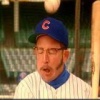
Article: Projecting The 2020 Twins Line-Up
Oldgoat_MN reacted to Pardon My Dinger for a topic
I don't expect to live that long. So...go get 'em guys.1 point -

Front Page: 1987 Revisited: Twins Upset Tigers
Oldgoat_MN reacted to Matt Johnson for a topic
Gaetti colluding with Holdingford High School grad and brief St. Cloud State Huskie Joe Brinkman. I like it.1 point
-
Recent News
-
Recent Blog Entries
-
Recent Status Updates
-
I really hold back what I would like to say about then payroll arguments here. The fact that people don't accept the amount taken in dictates the amount going out requires one of two things. Extreme financial ignorance or fanatical bias that prevents the acceptance of something some basic. I did not change the argument. It's the same idiocy over and over. Do you really want to be on the side that suggests revenues does not determine spending capacity?· 0 replies
-
Popular Contributors
-
Who's Online (See full list)
- There are no registered users currently online
















